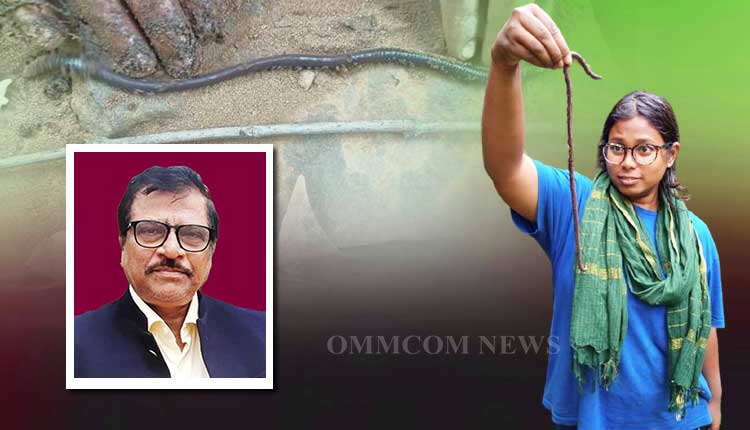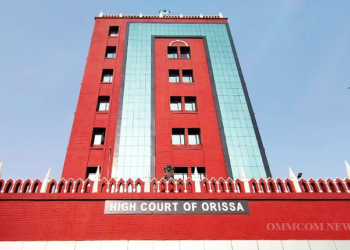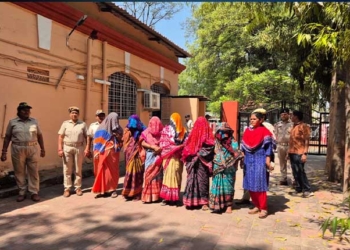Jeypore (Koraput): Researchers from the Central University of Odisha, Koraput, claimed to have two previously unknown species of Megascolex earthworms from the Eastern Ghats of Odisha.
Scientists from Mahatma Gandhi University, Kottayam in Kerala were part of the team of researchers.
During a study on earthworm diversity conducted in different parts of Koraput, some large earthworm specimens were collected from Rani Duduma and the Jeypore Ghati area of Koraput. Under the supervision of Prof. Sharat Kumar Palita, Dean of the School of Biodiversity and Conservation of Natural Resources of the CUO, the specimens were carefully examined in the laboratory.
Later with the support of Dr. R. Paliwal, Retired Scientist of the Zoological Survey of India and Earthworm specialists Dr. Prasantha Narayanan and Dr. A.P. Thomas of Advanced Centre of Environmental Studies and Sustainable Development, Mahatma Gandhi University, the two large earthworm varieties were identified as two new species which are completely new to science. They were identified as Megascolexjeyporeghatiensis and Megascolexquadripappilatus.
The report of these two new species from Koraput has been published in the reputed international taxonomic journal Zootaxa.
These two new earthworm species belong to Genus Megascolex discovered from relatively under-explored Eastern Ghats hills of Odisha. They belong to a group of species characterized by two pairs of spermathecal pores in intersegmental furrows 7/8/9, holandric, seminal vesicles in segments 9 and 12, absence of penial setae and calciferous glands. These two new species occur in deciduous forests with brownish gravel-loamy soils.
Two species are endemic to India especially Odisha’s Koraput District and Jeypore Ghati and Rani Duduma.
With this discovery, the total number of Megascolexspecies in the world has increased to 70, of which 34 are found in India. Mostly all Megascolex species are restricted to the southern portion of the Western Ghats mountain ranges in the southwest corner of Peninsular India.
With the discovery of these new species, the range of Megascolex groups of earthworms has been further extended into northern Peninsular India into northern Eastern Ghats.
Prof. Chakradhar Tripathy, CUO Vice-Chancellor, has hailed this as a great achievement for the scientific community of CUO and stressed the need for this type of basic research which can put CUO on the world map. He congratulated the team of researchers involved in this discovery.















